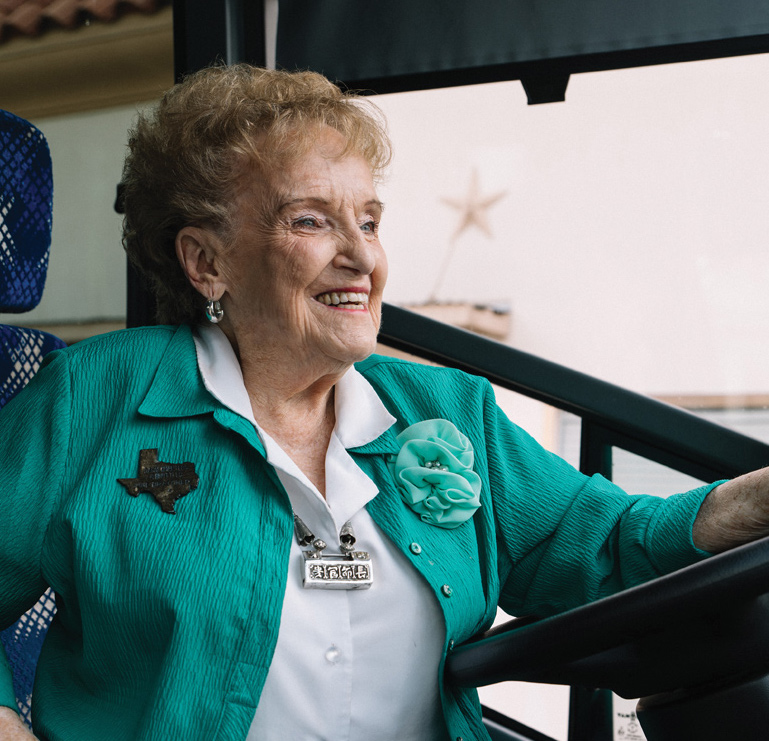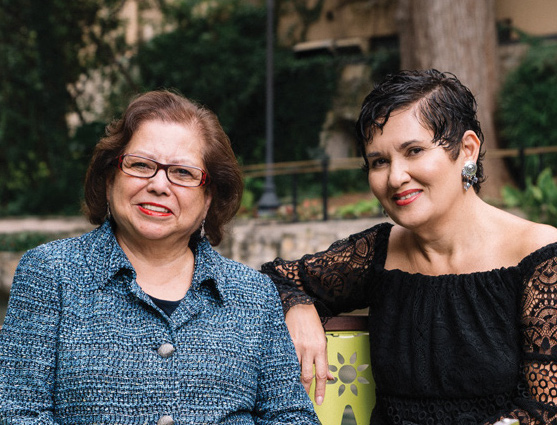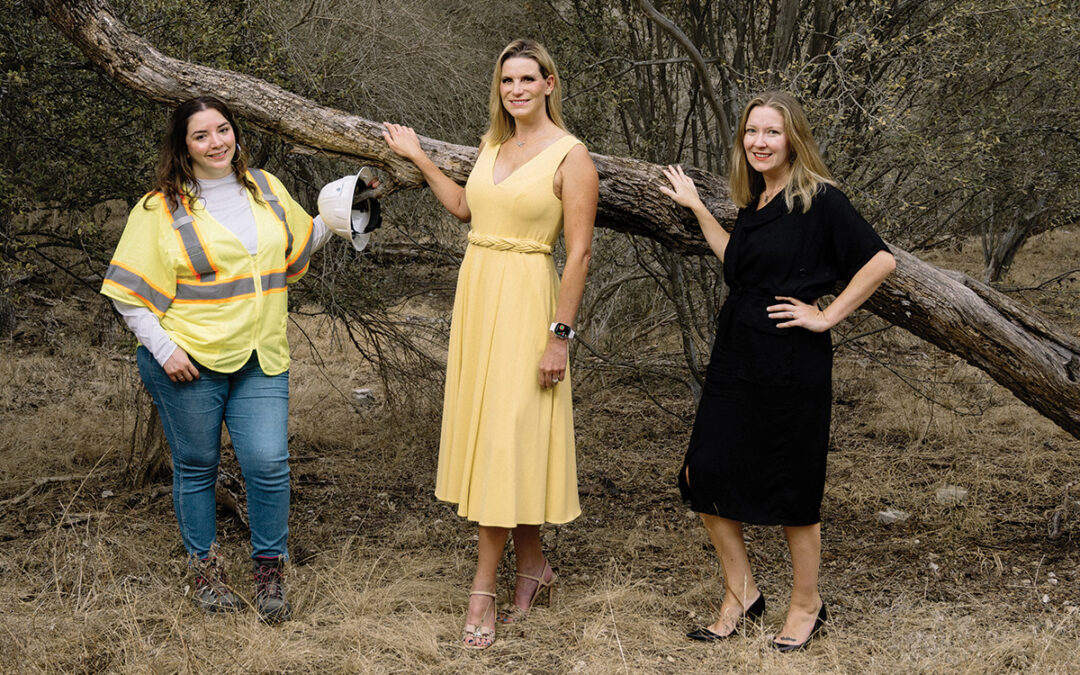TRANSPORTATION IN SAN ANTONIO
There are many things needed in daily life that often get overlooked. Humans know that food is essential for survival, just as they know clothes are a necessity — in most situations, anyway. We wear shoes to protect our feet, turn on the air conditioning in the summer or heat in the winter, and keep tidy the homes we are so fortunate to have. All essential elements in a day in the life, all things deemed necessary for human survival. However, there are certain things that often get taken for granted. For example, how hard it would be to eat without utensils (possible, sure, but not quite as tasteful)? How comfortable would our sleep be if we didn’t have a bed? What would illuminate a dark room if it weren’t for electricity? While we see the necessity of all these things, it is still rare that we acknowledge how important they truly are.
Another essential aspect of life, something often taken for granted but sorely missed when unavailable, is the ease of transportation. Through the many centuries, transportation has shifted from horses and carriages, to trains, boats, airplanes and automobiles. Although the forms of transportation have changed, some far more luxurious than others, there is little doubt that it has always been a necessity. Now, transportation has gone from a simple way to get from one location to another, and morphed into its own industry, and within that industry, a powerful subset of business leaders have emerged. Women are quickly proving that cars (and related vehicles of that nature) are not just boy’s toys. From boats used to give vibrant tours and showcase beautiful locations, to buses fit for travelers and soldiers alike, to ridesharing options that have the power to prevent alcohol-related crashes and reduce congestion in busy cities, four San Antonio women are making strides in the transportation industry, breaking ground in what has traditionally been a man’s world.
Ralph Waldo Emerson once said, “Do not follow where the path may lead. Go instead where there is no path and leave a trail.”
For Janet Peavy, market manager of Lyft San Antonio, June Bratcher, founder and CEO of Daisy Charters and Shuttles, and Hope Andrade and Lisa Wong, the women who run Go Rio Cruises, this quote is more than just a nice sentiment. It’s the definition of what they have done and continue to do in the transportation industry.
Janet Peavy
 There’s a single word Janet Peavy, the market manager for Lyft San Antonio, uses to describe working in the transportation industry. While it may be fast-paced, busy and ever-evolving, the word she employs often is shorter, simpler and encompassing of the personality Peavy herself possesses. In a word, Peavy said working in the transportation industry is fun. “It’s fun stuff to me!” she said with a bright smile, despite the early morning time-stamp on our meeting. “You know, just interacting with different kinds of people and figuring out how we can solve some issues that the city is dealing with. Pretty much everything that happens in the market is me. Me and my amazing team.”
There’s a single word Janet Peavy, the market manager for Lyft San Antonio, uses to describe working in the transportation industry. While it may be fast-paced, busy and ever-evolving, the word she employs often is shorter, simpler and encompassing of the personality Peavy herself possesses. In a word, Peavy said working in the transportation industry is fun. “It’s fun stuff to me!” she said with a bright smile, despite the early morning time-stamp on our meeting. “You know, just interacting with different kinds of people and figuring out how we can solve some issues that the city is dealing with. Pretty much everything that happens in the market is me. Me and my amazing team.”
As the market manager, Peavy’s job is wide-ranging. She handles profit and loss responsibilities, as well as working in partnership with city leaders to fix transportation issues around San Antonio. Peavy also oversees numerous anti-DUI campaigns, working closely in conjunction with the San Antonio Police Department to offer ride-sharing options for locals and visitors during festivals, concerts and holidays, as well as on a day-to-day basis. “That’s something we care a lot about, and they’ve actually shown that we’ve reduced DUIs in this city up to 30 percent,” she said. “That’s a huge difference.” Peavy is also passionate about reducing congestion in the city, which is something she said Lyft helps with tremendously. Currently, Lyft has a “Ditch Your Car” partnership with Via, a mass transit agency that has operated in San Antonio since 1978, which encourages people to forgo their cars in favor of more eco-friendly options. “We’ve convinced 50 people in the city to give up their cars, and they get $300 in Lyft ride credit and a free bus pass for a month,” Peavy explained. “We’re trying to show them how easy it is to get around town.” Peavy’s enthusiasm for making a difference in the transportation industry is infectious, and her smile is radiant. The joy she finds in her work is obvious, as was demonstrated the minute she greeted me at the door to the brightly-colored Lyft office, which she opened herself. Along with their Broadway location, Peavy also oversees a second Lyft office on Crown Hill, where they rent cars to their drivers — another aspect of Lyft that Peavy said she appreciates. “Anybody that doesn’t actually have a car that meets our platform standards, we’ll rent them a car so they can drive for us,” she explained. “So, we’re providing jobs to the community as well.”
After finding the job posting a year ago, Peavy said she researched the company values and found in Lyft a perfect match for her passions.
“As a marketer, I’ve always been really interested in the next wave of technology,” she said. “This really seems to be where transportation is going in the next few years, and that’s exciting to me. To have an opportunity to shape a market and develop that in conjunction with city leaders is really exciting.” While the technology aspect of her job is something she enjoys, Peavy’s cheerfully compassionate personality shines through when she begins talking about the community she is part of. “I had spent years in the nonprofit world raising money for the community, and the chance to combine my passion of cutting edge technology and the ability to do something positive for the community with that technology — it was really cool,” she said.
For all the bases Peavy covers as the market manager, it is no small wonder that she manages to keep a smile on her face and maintain her positive personality. As with any job, Peavy said there are times when situations can be challenging, or people can be difficult to work with. However, true to her nature, Peavy said there are ways to look at the challenges that aren’t negative. “There’s always struggles, and people that have different ideas, but that’s part of the fun of it, too,” she said. “I prefer to look at it as fun, like it’s a puzzle you need to solve, because people aren’t inherently mean or difficult. They just have different ideas than you, and once you figure that out and see what the common ground is, you can solve just about anything.” As a mother of one son and three daughters, Peavy said she takes her role as a woman in transportation very seriously. She said she has often walked into a conference room and been the only woman there, and while the idea of it may be frightening for some, it’s exciting for Peavy.
“I like that idea, that I’m kind of breaking ground a little bit, because as women we’re still breaking ground,” she said. The idea of breaking ground is a very important lesson Peavy said she wants to instill in her children. “I want to let them know they can do whatever they want to in life. They don’t have to feel bound by traditional roles or things like that. If they want to go do anything, just go do it.” It’s a lesson Peavy has taken to heart, as evidenced by the role she plays within Lyft and the transportation industry itself.
June Bratcher
 Nestled on the east side of San Antonio sits a quaint, colorful office. Surrounding the small building are vehicles familiar to anyone who has spent time on Texas highways. A fleet of buses with the name “Daisy Charters and Shuttles” emblazoned on the side are parked in the lot, sparkling clean and shining in the Texas sunshine. It’s an interesting sight, this cozy office surrounded by towering buses, but here sits the home base of a six-million-dollar bus company that began as a humble endeavor in the kitchen of June Bratcher. The woman at the helm, who has been running the brigade of buses since 1980, has more than a few stories to tell from her 39 years as CEO of Daisy Charters and Shuttles. Armed with the yellow pages and $200 she saved from the family grocery money, the then 48-year-old began building her empire one phone call at a time — but not without a few hiccups getting started.
Nestled on the east side of San Antonio sits a quaint, colorful office. Surrounding the small building are vehicles familiar to anyone who has spent time on Texas highways. A fleet of buses with the name “Daisy Charters and Shuttles” emblazoned on the side are parked in the lot, sparkling clean and shining in the Texas sunshine. It’s an interesting sight, this cozy office surrounded by towering buses, but here sits the home base of a six-million-dollar bus company that began as a humble endeavor in the kitchen of June Bratcher. The woman at the helm, who has been running the brigade of buses since 1980, has more than a few stories to tell from her 39 years as CEO of Daisy Charters and Shuttles. Armed with the yellow pages and $200 she saved from the family grocery money, the then 48-year-old began building her empire one phone call at a time — but not without a few hiccups getting started.
“First of all, I couldn’t get a loan,” Bratcher said with a shrug of her shoulders. Every bank she visited refused to give her a loan, despite her many years working with the Texas Medical Board and in politics. “Every bank I went to get a loan from, they said, ‘I’m sorry, but if you have your husband could come and sign for you, we would be happy to give you some money.’” When she replied that it wasn’t her husband’s business but her own, they asked if she had a son who could sign for her. “It made me so angry,” Bratcher recalled. “I said, ‘Here I am, I’ve been in business 7 years, and I have survived. My son is a wonderful boy, but he has no job, no car and no money, and you’re going to trust him before you trust me?’” So it was for a woman trying to break into the transportation industry in the early 1980s. The opposition didn’t end with the banks. When Bratcher went to Austin to apply for a permit to buy buses of her own, the owners of the Kerrville and Gr
greyhound bus companies tried to have her permit denied. Lucky for her, she said, the arbitrator that day deciding on who was granted permits was a woman. After handing in all the necessary paperwork and presenting her case, Bratcher said the woman picked up her gavel, pounded it on the desk and said, “Granted.”
“I nearly died,” Bratcher said with a laugh. The relief in her voice is still palpable, even after all these years. “I was so happy, and I didn’t look at Greyhound or Kerrville because I knew them personally. I looked straight ahead, went outside the door, and Kim and Frank” — her daughter and one of her drivers, the two people she had brought with her to apply for her permit — “were jumping up and down and screaming. That afternoon, we blew $0.25 a piece on a pizza to celebrate.” Bratcher explained that now, each of her buses are given a number beginning with 25 “to remind us of our humble beginnings,” she said with a coy smile. After she was issued her permit, Bratcher was able to purchase buses of her own, the beginning of her fleet, and has grown it for nearly forty years. Through those years, Bratcher has overcome numerous ordeals, from being held at gunpoint — “That was very traumatic,” she recounted offhandedly as I sat in near-comical shock — to fighting for her drivers in a sexual harassment lawsuit.
Overcome she has, however, and her business has never been stronger. Today, Bratcher owns 24 coaches and has many drivers who have been with her for over 20 years, a fact she is both proud of and thankful for. “I love my employees; they’re good to me and they stand by me,” she said with a warm smile. “I think it makes a big difference with your company if you are part of a family, and this is a family operation, and all of my drivers that have been here for so long are like family. I’m crazy about every one of them.”
Bratcher also holds the contract with the military to be the shuttle service that moves the troops. Bratcher laughed as she recounted the story of how she earned the contract. During a meeting with many of the San Antonio transportation companies, two bus company owners sat on either side of Bratcher and talked over her about the “deal” that was coming up. “It really made me angry, because I knew what they were talking about,” Bratcher said of putting in bids for the contract. “I hadn’t done it because I didn’t know how to make out a form to apply for that kind of thing, and I thought, ‘They think I’m too stupid to know what they’re doing because I’m a woman. They think that I don’t know anything.’”
With the same fighting spirit that Bratcher applied to everything else in her business, she set to work on creating a bid to apply for the military contract. With the aid of two good friends, Bratcher put together a bid and submitted it, with little hope Daisy Charters and Shuttles would win. When it was announced at 10:00 the following morning that she had been awarded the contract, Bratcher was shocked. “All the men started talking to me and they said, ‘June, why did you do that?’ and I said, ‘You remember that ad when we were at war and Uncle Sam said, “Shh, you don’t know who you’re talking to”? Well, you don’t know who you’re talking to,’” she recounted with a chuckle.
In her many years of business, it seems there is little that Bratcher has put her mind to that she hasn’t accomplished. When it came to finally getting her loan, Bratcher again fought for what she knew was right. During a two-month class for female business owners at Kelly Air Force base, Bratcher put together a 39-page application for a loan. She took it to her bank, and they laughed before taking her application and looking it over. “They came back and two loan officers came with them,” she recalled. “They said, ‘Mrs. Bratcher, who did this for you?’ I said, ‘I did this for me. Ask me anything about it, anything you want to know, ask me about it.’”They did, she said, and she was able to answer every one of their questions. After another brief meeting, they came back and told her they would loan her $125,000 on her name. “I said, ‘Okay, that’s wonderful. That’s exactly what I need,’” she said with a laugh. From there, she was able to buy her buses, and she has never looked back.
“The men, they just cannot believe that a woman could to do this, you know?” she said seriously. “Slowly but surely, they came around to talking to me, and I went from ‘that woman’ to ‘Daisy’ and then they finally learned my name, and now I think I have the respect of everybody, because I have proven to them that I can do it.” As her company clearly shows, Bratcher has done more than prove herself – she has thrived in an industry that she had to fight her way into. “I just pray every day when I retire — if I ever retire — that I’ll be proud of my company,” she said, smiling. “I want to be really proud of my company, and I think I’ve done everything in the book.”
Hope Andrade & Lisa Wong
 The new operators of the River Walk boat tours take their jobs very seriously, having been awarded a 10-year contract by the City of San Antonio just over a year ago. Of course, ask them their job title and they’ll give you different descriptions. “When people ask me, ‘What are you doing now?’ I say, ‘Well, I’ve gone from everything I’ve done to a River Rat now,’” Hope Andrade said with a big laugh the morning of our meeting.
The new operators of the River Walk boat tours take their jobs very seriously, having been awarded a 10-year contract by the City of San Antonio just over a year ago. Of course, ask them their job title and they’ll give you different descriptions. “When people ask me, ‘What are you doing now?’ I say, ‘Well, I’ve gone from everything I’ve done to a River Rat now,’” Hope Andrade said with a big laugh the morning of our meeting.
Her partner, Lisa Wong, shook her head with a smile before laughing as well. “We’re River Ambassadors,” she said good naturedly. “Can we say we’re River Rat Ambassadors?” Andrade joked, and Wong laughed again. Their repertoire demonstrates the easy relationship the two have, something they said has come in handy throughout the process of owning and operating Go Rio San Antonio River Cruises. “We know our strengths, and she has many and I have a few,” Wong said, “and we know how to take those strengths, and our Go Rio operation benefits from it.” “It’s a partnership,” Andrade added. “With Lisa and I being local and having prior business experience, we know what it takes to build a business. A great partnership can build or break a business, and in this case, I can tell you it’s only going to build it.”
Between their shared years of business experience — Wong has more than 30 years of experience in the hospitality industry with a successful restaurant legacy in San Antonio, and Andrade has served as the board chair for VIA Metropolitan Transit, as well as the Secretary of State for Texas, among other endeavors — the two pack a pretty powerful punch. Having just wrapped up their first year as the operators of the River Walk cruises, Wong and Andrade said they couldn’t have asked for a better beginning. “It was a great first year,” Wong said. “I think our goal is, as a team, to consistently raise the standards, and we are going to consistently rise to the top, and not only be proud of what we’re providing for our beautiful city, but also make our partners, the City of San Antonio, proud of what we’re doing.” Both the City and its occupants have something to be proud of in the new tours offered on the River Walk. First and foremost, the new tour boats are a beautiful new addition, as
visitors to the River Walk may have noticed.
“The boats are all electric,” Andrade explained. “They’re new, so they’re very colorful, and they represent our community. Lisa and I have said often, we may lease the boats from the city, but they’re our babies now.” “They’re quiet, and they don’t have the fumes,” Wong added. “It’s much more enjoyable, not only for the guests on the boats, but also for our local River Walk partners who have businesses along the River Walk.”
The two have worked incredibly hard in the last year to take the traditional river tours and step them up a notch. They have introduced fitness cruises, offering early morning yoga as well as spin classes. They’ve also designed specialty cruises that offer brunch, cocktails and dinners, and, specifically for the upcoming holiday season, they’re offering Coco Cruises, during which they’ll serve hot chocolate and home baked goods. They plan to offer one from the Pearl as well, called the Pearl Lights.
They’ve also implemented a special shuttle service with designated arrival times, making it easier for patrons to get from one location to the other. This reliability is what Wong and Andrade have worked hard to provide through Go Rio cruises this last year, and it’s something that matters deeply to them both. “I’ve been in transportation for a long time now. It’s such an important role. Transportation is like your utilities — you need it to get around. Lisa and I are just trying to offer one more option,” Andrade said. “When I think of transportation, I always think of providing a service that’s efficient, that’s reliable, that’s affordable, and I think that’s what we’ve done here.”
“Transportation is the way we live today,” Wong added. “We are the ambassadors to showcase our River Walk, and it’s our job to show that to as many guests as we can, and in order to do that, we have to have a very efficient method of transportation.” The pride the women take in their Go Rio operation is obvious in the way they talk about their business. Since their contract began just before the holidays last year, Wong said
experiencing the season on the River Walk was something she’ll never forget. “To see so many locals and tourists coming down to experience what we as San Antonians have in our backyard,” she said, “that put not only a big smile on my face, but also gave me a huge sense of pride that I was part of something so important to our River Walk and to our city.”
For Andrade, it’s the interaction with the guests that brings her the most joy. “I love getting to hear the visitors’ comments. The feedback about how beautiful our city is, how warm and friendly everyone is, how clean the river is…” Andrade trailed off, a smile on her face. “I promise you that I’m a foot taller since I’ve been on the River Walk, from just the pride of hearing those comments.” After an active first year, Wong and Andrade are gearing up for a second round. They invite everyone, local or visitor, to return to the River Walk, whether to experience it for the first time, or to rediscover the treasure San Antonio is so fortunate to claim. For example, when the NCAA Final Four was hosted here in March, the River Walk and Go Rio played a special part in showcasing the beauty of the Alamo City in a way that was uniquely San Antonio.
“When we transported the Final Four, the bands, the players the coaches…” Andrade recalled. “Nowhere else but in San Antonio could they be transported on a boat. Nowhere else. Nowhere else can you experience what you’re going to experience on a Go Rio boat.” “In the heart of San Antonio,” Wong said proudly. “Memories,” Andrade agreed. “Beautiful memories.”
By Haylee Uptergrove
Photography by David Teran









0 Comments